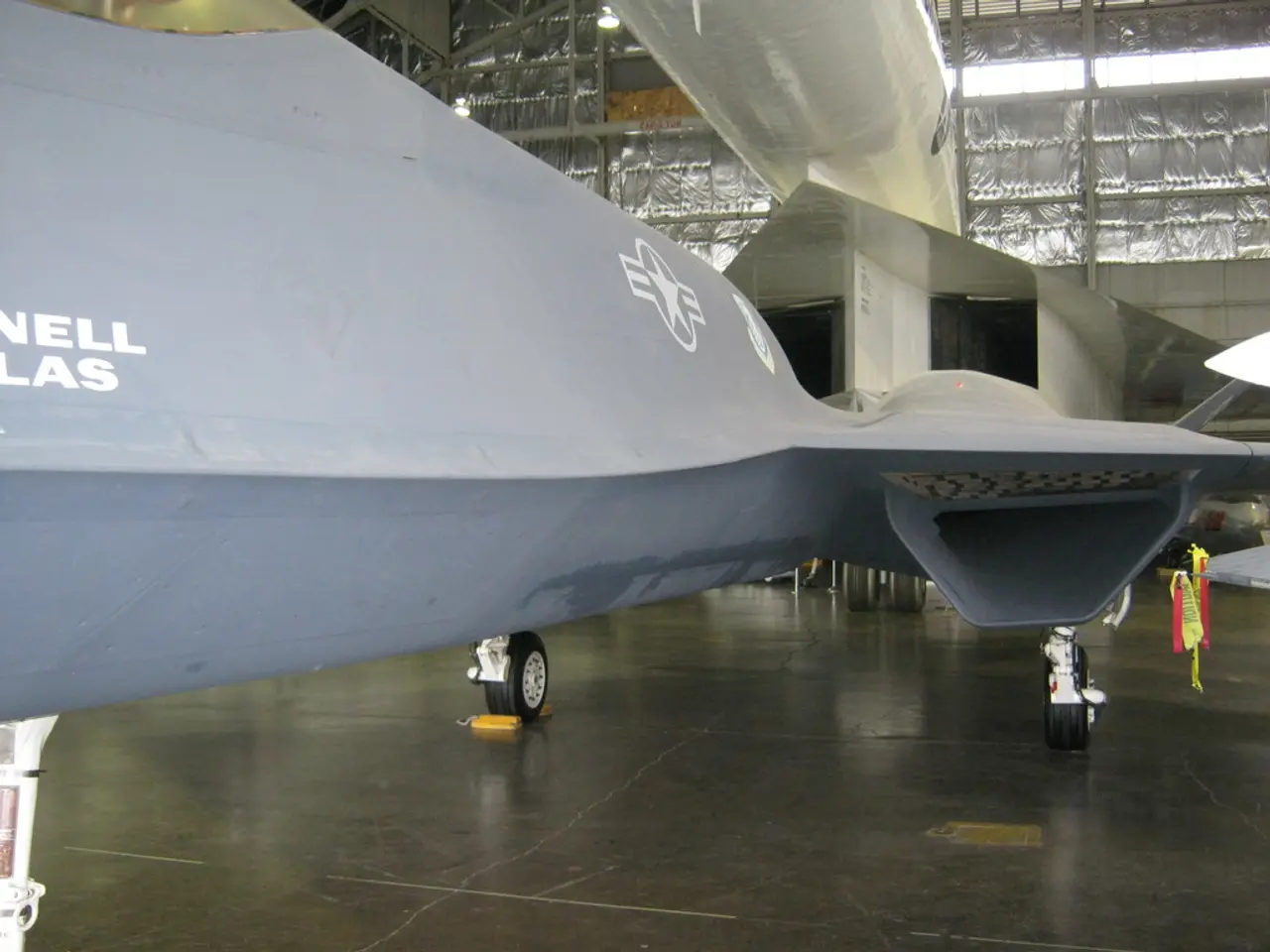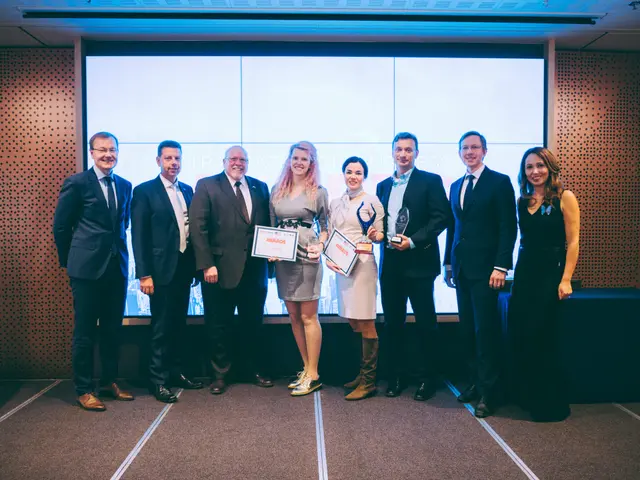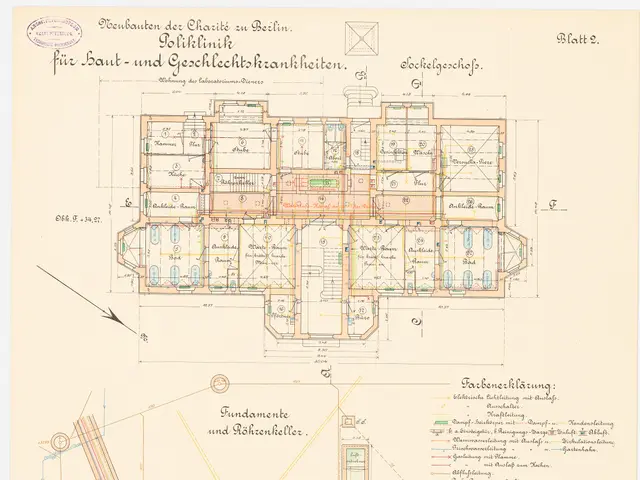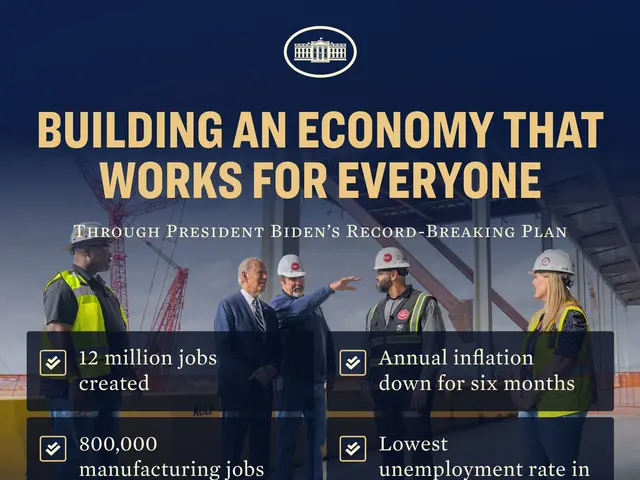The ZEROe aircraft has made its appearance
Airbus, the global aerospace giant, is pushing the boundaries of aviation technology with its ambitious plan to develop the world's first hydrogen-powered commercial aircraft by 2035. The multi-year demonstrator program, called ZEROe, is a significant step towards reducing carbon emissions in the aviation industry.
Testing Hydrogen Technologies on the A380 MSN1
The A380 MSN1, the first-ever Airbus A380 to roll off the production line, is being used as a testbed for the ZEROe demonstrator. This aircraft is an excellent flight laboratory platform due to its size, safety, reliability, and versatility. It can accommodate the large flight test instrumentation needed to analyze the performance of the hydrogen in the hydrogen-propulsion system.
In 2015, one of the most powerful engines ever developed for an Airbus aircraft was approaching the final stages of development. CFM International, a joint venture between GE and Safran, is modifying this engine to run on hydrogen for the ZEROe demonstrator. The engine, a GE PassportTM turbofan, will be mounted along the rear fuselage of the aircraft.
The ZEROe Demonstrator Program
The objective of the ZEROe demonstrator program is to test a variety of hydrogen technologies both on the ground and in the air. Each technology component will be tested individually before the complete system is tested. The test flight of the development engine took place on a pleasant autumn day from Airbus' facilities in Toulouse, lasting 4 hours and 14 minutes. The test flight analyzed the performance of a wide range of power settings at altitudes of up to 35,000 feet.
Mathias Andriamisaina, Airbus ZEROe Demonstrator Leader, stated that the A380 MSN1 is a safe and reliable platform highly versatile for testing a wide range of low-carbon technologies. Previous demonstrator programs by Airbus include the E-Fan family, Vahana, CityAirbus, and E-Fan X.
Partnerships and Initiatives
Airbus' ambition to develop the world's first hydrogen-powered commercial aircraft by 2035 entered a new phase in 2022 with the launch of the multi-year demonstrator program. The ZEROe demonstrator will test groundbreaking low-carbon aviation technologies.
Besides Airbus, the Clean Aviation program is a key partner in this development. This European initiative backs hydrogen and electric propulsion technologies, structuring development in two phases (maturation 2022-2025, integration/demonstration 2026-2031) aligned with the ZEROe timeline. The European Commission has also provided funding for related studies, such as the Airbus-led Cryoplane Study on hydrogen aircraft configurations and infrastructure.
Timeline
- September 2020: Airbus unveiled three ZEROe hydrogen-powered aircraft concepts targeting commercial service by 2035.
- 2022–2025 (Phase 1): The Clean Aviation program focuses on technology maturation, assessing various disruptive aircraft concepts and maturing key enabling technologies, supported by testing and validation.
- 2026–2031 (Phase 2): The focus shifts to integration and demonstration of technologies in aircraft concepts powered by sustainable aviation fuel (SAF) or hydrogen with hybrid electric propulsion, targeting technology readiness appropriate for a 2035 entry into service.
The first flight of the ZEROe demonstrator is expected to take place in the next five years. Airbus remains committed to leading the way in sustainable aviation, with the ZEROe demonstrator program being the latest in its series of demonstrator programs to test pioneering technology.
- The Clean Aviation program, a European initiative, is partnering with Airbus in their ambition to develop the world's first hydrogen-powered commercial aircraft by 2035, contributing to technology maturation and supporting the ZEROe demonstrator program.
- As part of their commitment to sustainable aviation, Airbus is not only focusing on hydrogen-powered aircraft but also exploring partnerships with other industry leaders, such as the European Commission, in programs like the Cryoplane Study, which aims to optimize hydrogen aircraft configurations and infrastructure.








